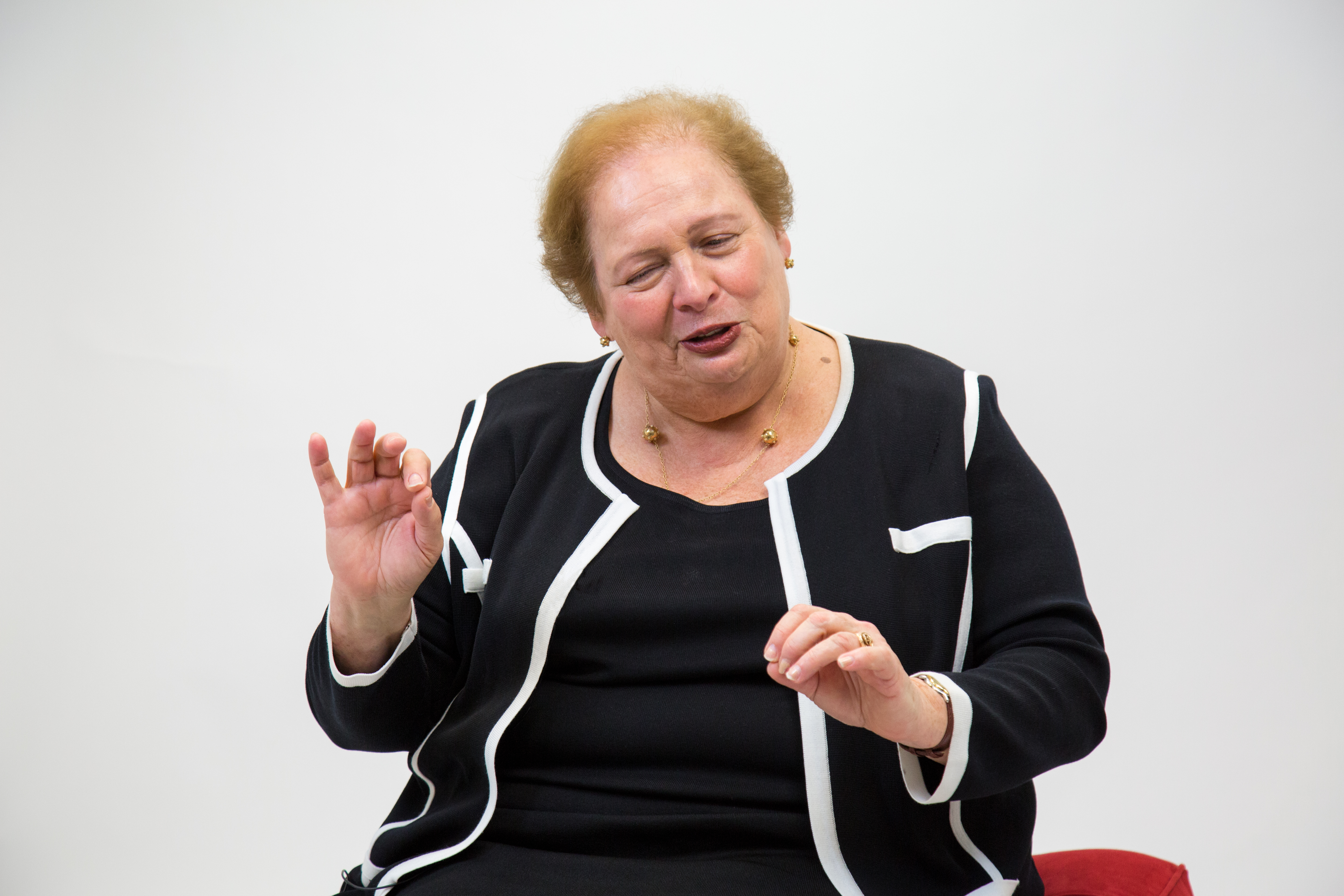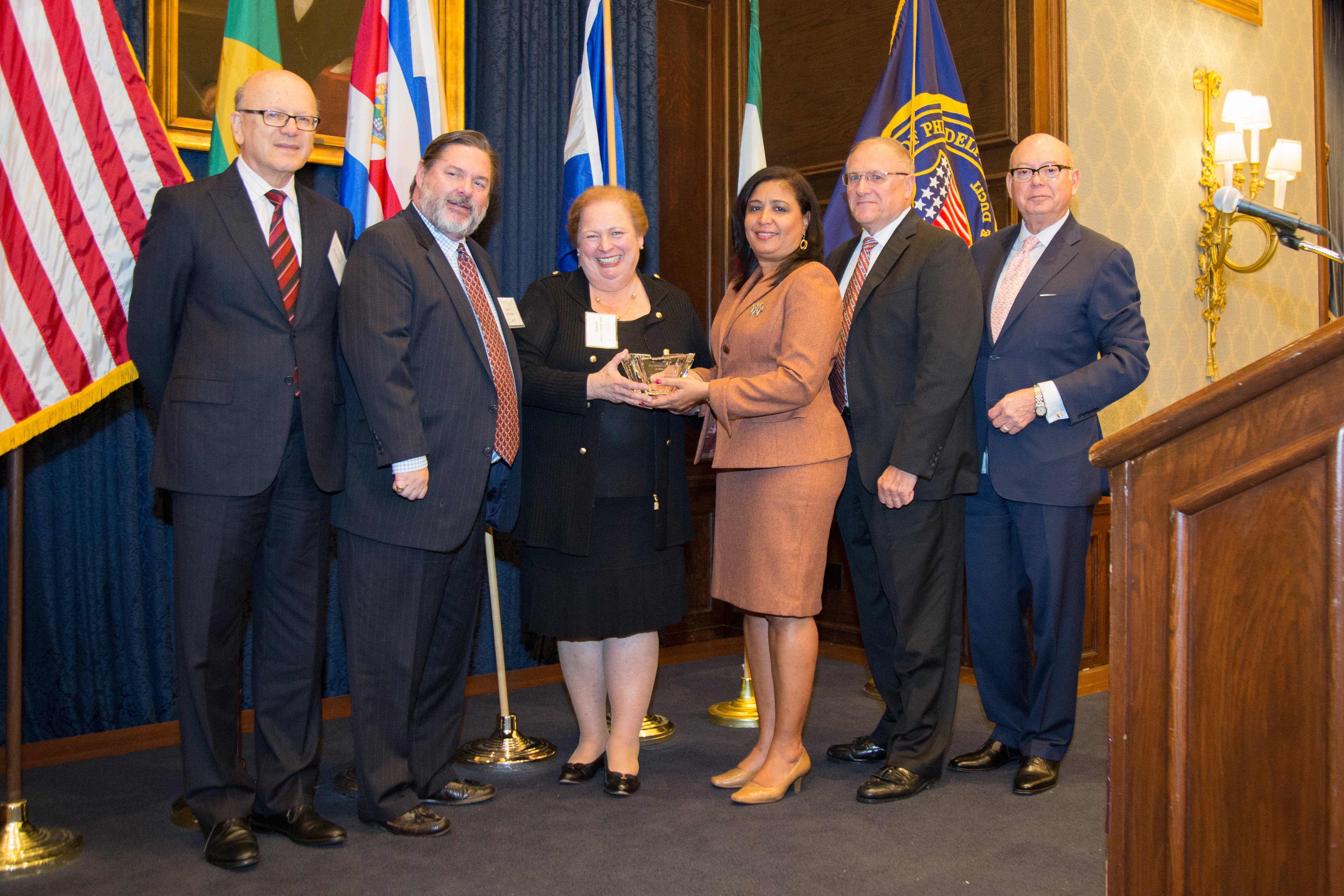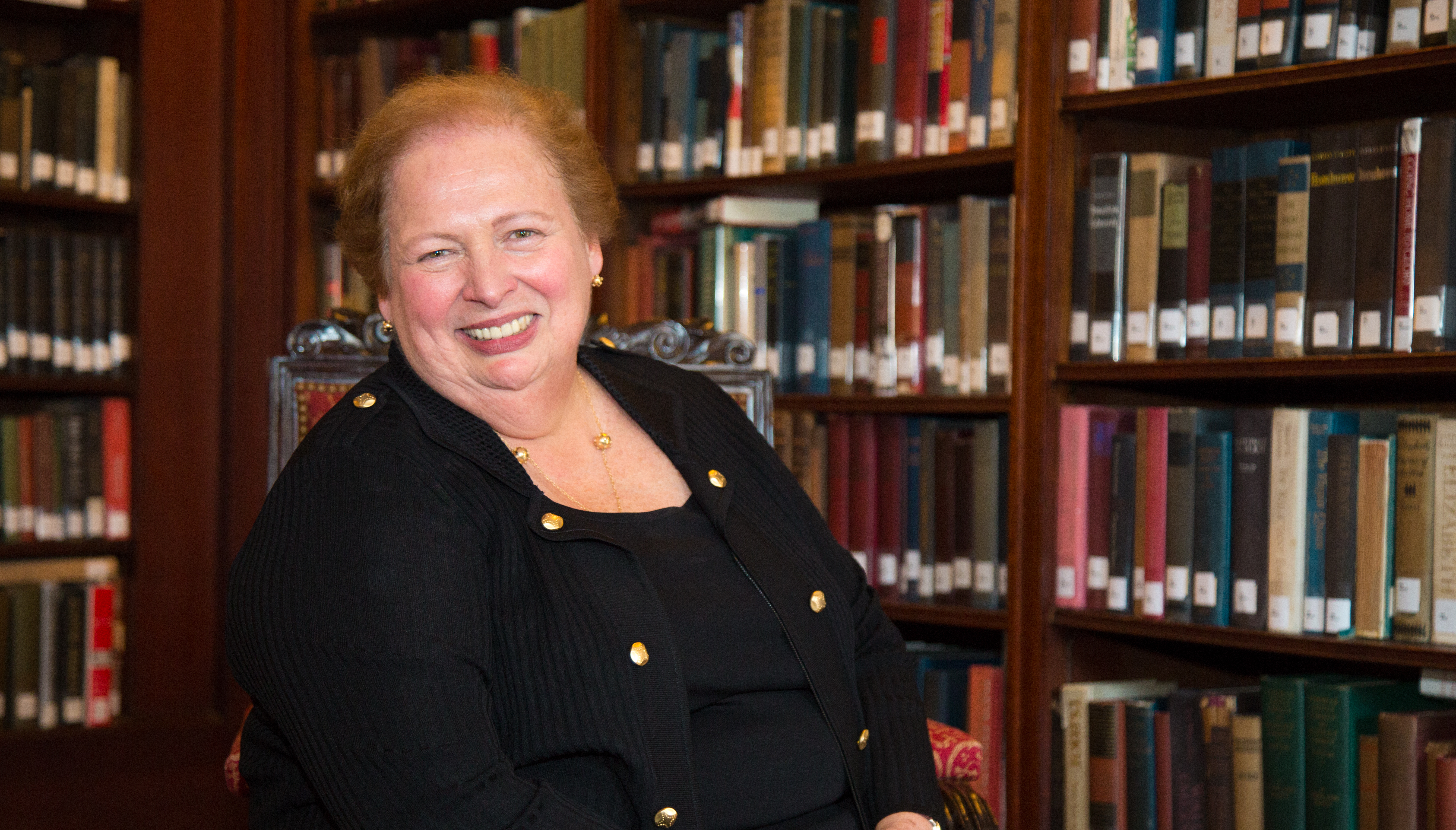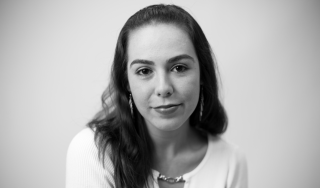
Mari Carmen Aponte: On Being A Latina In The Public Eye
On October 25th, Mari Carmen Aponte was recognized by the Pan-American Association in Philadelphia for her service with the 2017 William J. Clothier Memorial…
The French existentialist feminist Simone de Beauvoir once wrote that one is not born, but rather becomes, a woman.
This journey is a difficult one, to be sure, for the XX chromosome comes with a warning label. The harsh side effects of gender discrimination, societal norms, bias, sexual exploitation, and abuses are felt- almost daily -for those who have taken the brave plunge into womanhood.
And for those females who are prominent figures and/or are minorities? The plunge is far more onerous, an abyssal realm full of tabloid smearing, photoshopped horrors, disturbing commentary, and insecurity.
Some sink, letting the emotional burdens and obstacles stubbornly posited by the patriarchy drag them downward to defeat and complacency, while others refuse to give in, and let their determination and heart persist and transcend above the prejudice.
Mari Carmen Aponte rose.
In 1964, Mari Carmen came to Rosemont College from Puerto Rico with the values instilled by her parents tucked into her luggage, ready to be put on display in her freshman dorm room. Like Mari Carmen, her mother was strong and a trailblazer: she received a graduate degree from New York University after Mari Carmen was born and away from her husband. There was no doubt in the Aponte household that Mari Carmen was to spread her wings towards academia in The United States. “Education in my household was seen as the way out of poverty, as the way out of economic lack. There was never a question that I would go to college,” she recounts.
Mari Carmen sure loved to pursue her studies; she came to Philadelphia with the intention of one degree, and wound up with three: Political Science from Rosemont, a Master’s in Theatre from Villanova, and a Juris Doctorate from Temple University. “If I had known how much theatre I would need for law and for politics… Woah, I definitely would have gotten a PhD in Theatre!”, she jokes.
However, her studies went beyond the classroom. It is here, in fact, in the city where American democracy flourished, that Mari Carmen attributes the beginning of her social conscience. People like Nelson Díaz “changed [her] life”, and a teaching stint in Camden before her law degree was where she realized that it was not only about what she could do and accomplish for herself, but rather what she could do and accomplish for others. Her burgeoning sense of duty and responsibility to her community and country began in Philadelphia.
It did not stop there.
Soon afterwards, Mari Carmen became the first Latina lawyer in Pennsylvania, the first Latina White House Fellow (in 1979, under President Jimmy Carter’s administration), the first female president of the Hispanic National Bar Association, and the first Puerto Rican woman to hold the title of U.S. ambassador (to El Salvador).
The distinguished honors, accolades, awards, and groundbreaking positions came a-flowing. They still do; this past October 25th, Mari Carmen was able to rouse an entire ballroom in the Union League to their feet with a fiery speech on the importance of maintaining mutual respect and amiability between our country and the nations within Latin America.
Those in the Pan-American Association cheered her on and had nothing but praise as she accepted the William J. Clothier II Memorial Award.
But womanhood- and especially the type of womanhood that threatens the dominance of men -is no fairytale, and being a Latina in the public eye is the perfect opening for villainous forces to attempt their treachery, to thwart the deserved admiration.
Unbeknownst to Mari Carmen, a Cuban boyfriend would become her poison apple.
President Clinton in 1998 personally nominated Mari Carmen to be the ambassador to the Dominican Republic, but her relationship with Roberto Tamayo (a liberal Cuban, and therefore a suspicious Cuban to a Republican-controlled Congress), frayed the opportunity. Tamayo, wrongfully accused as a Cuban spy, was the convenient excuse to not allow a Latina to hold a coveted diplomatic title. Scandal and speculation pushed Mari Carmen to withdraw her nomination.
RELATED CONTENT
"To this day, I am convinced that the problems I had with that confirmation would not have even been given a second though, had I been a man, because the presumption was that this man, with his ‘liberal’ beliefs would influence me. Well, theeeeeeeeeey had NO idea! I am NOT influenced by a man just because he is a man. This was absolutely shocking to me. And, it didn’t matter what the investigation proved or what I had proven throughout my career. Nooooope, ‘she’s being influenced by him’ is all they could say. Pfffft. He used to work for JOHN HANCOCK. I mean, how American can you get? How apple-pie, Boston, Declaration of Independence can you get?"
Yet again, after that tough round of political drama overwrought with misogyny and media attacks, President Obama’s nomination for her Salvadoran ambassadorship in 2012 resurfaced the allegations, even though she had “not seen [Tamayo] in over twenty-five years!”.
"Again, what man is asked how a woman- especially one that he dated so long ago -influenced him?! I guarantee you that NO ONE even thinks about asking that question to a man. But for a woman? It was constantly raised in my case. Constantly. There is no doubt in my mind that it had to do with being a woman, and probably being a Latina. In the end, though, it was Republican women that voted for me. I will be forever grateful to them for helping me break through the filibuster, and for Senator John McCain, for being incredibly understanding, for having faith in me, and for being rational.”
Mari Carmen affirms that the experience was a learning one, with invaluable and wonderful lessons about the strength of solidarity amongst women in the government.
In spite of the sexism in Washington, she retains her joy, her faith in humanity, and her personality (overbrimming with humor and flair in a way that writing simply cannot do justice to).
“You cannot let the abysses, these dark holes in the system, take over your life. You have to come out of them a winner, and you can only do that from within.”
The situation for women in El Salvador, in Puerto Rico, and in Washington has- according to Mari Carmen -become “bleak”, but she acknowledges the varying level of desperation; the complex darkness of the labyrinth of womanhood is easier to break through in some places than in others.
In El Salvador, there are roughly 16 murders a day on a population of 6 million, but The Department of Homeland Security and I.C.E. does not give numbers a voice in the courtroom.
“It is heart wrenching to see mothers, with toddlers, crossing the border because they want to give them a better life, and then being sent right back to the violence. Unfortunately, the law of asylum for immigrants is very high-standard, and you really have to prove that YOU, YOURSELF, PERSONALLY, are the target of those abuses. The problem is that everybody is the target. There are a lot of serendipitous situations situations that may cause you to be at the wrong place at the wrong time, even if that ‘wrong place’ is your front door. You could get shot, or robbed, or killed, or raped… Daily life means living in fear in El Salvador.”
A lot of funding for the projects needed to keep women and children safe in El Salvador that the United States initially began will be drastically cut by the upcoming budget.
In Puerto Rico, as of October 25th, 80% of the island’s inhabitants have no electricity, and about 40-45% are still without running water. Mari Carmen, only a few days after Hurricane Maria struck her homeland, published a piece for The Washington Post to remind mainlanders that Puerto Ricans are just as American as those who live in the States.
“I wrote about it from the beginning. I saw it. I saw it coming! I saw the neglect, I saw the lack of caring, and I panicked. Now, we are at Day 33 or 34 since the hurricane hit, and it’s only gotten worse! Who among us in the continental United States could be without electricity for a month? It’s unheard of. I have no idea how this Administration can just sit back, and essentially say, ‘It’s not MY job! And you better not get used to having FEMA around because they’re going to be leaving soon!’. Hmmmppph. It leaves me speechless, it leaves me gasping for air.”
But of course, Mari Carmen is always looking for a silver lining. The one she sees for Puerto Rico is the “changing political landscape” in Florida, which has been steadily overflowing with displaced Puerto Ricans, re-locating in The Land of Mickey Mouse. She tells me this with a satisfied laugh and an overt wink.
What Mari Carmen believes will really shake the status quo and make this country more powerful, is encouraging women to further rattle the political landscape, appointing women to the forefront of diplomacy, and giving women a seat in the proverbial table.
“I know [with women] there’s something positive, even when there are some people in Washington right now that… That make me think it is impossible. No, I know there’s something good coming out of there. Sometimes I don’t know what it is, and sometimes it’s difficult to see, but I know- in my heart -I have such faith that positive things will come out of it.”











LEAVE A COMMENT: